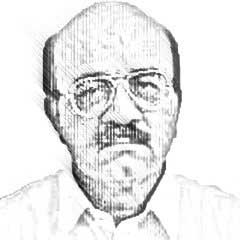On a quest to improve livelihood in rural Pakistan to the perfect village initiative, UNICEF Team came across Tando Soomro, a model village in District Tando Allahyar; situated at a distance of 50 km from the city of Hyderabad in the Sindh province. In Tando Soomro, the villagers together formulate a committee by electing leaders among themselves to carry out initiatives on health, safety, hygiene, and clean water. In Tando Soomro, you will see paved streets, secure sewerage drains and a proper waste management system deployed by the villagers’ committee. Wooden panels are placed on every electricity pole to safeguard children from electrification while playing in the streets. Separate land is also allocated as a playground for the children of the village to play football and cricket. Everyone is facilitated with the provision of security, hygiene, and health. To protect residents from common diseases like diarrhoea, the committee has ensured access to clean drinking water for every villager through Reverse Osmosis Water Filter. To protect people from malaria, dengue and polio, the committee carries out frequent disinfecting spray and polio vaccination throughout the year.
The village has a government hospital, jointly administered through a public-private partnership with the villagers and provides free healthcare facilities to everyone. The committee works closely with the government to run schools in the area to ensure 100 per cent enrolment from the village, hence, creating a brighter future for generations to come. Special emphasis is given on the education of the female population, which is evident from the high female enrolment in the schools of the village.
Given the law and order situation in the area, the villagers have built a boundary wall encircling the entire village, with the entry and exit points secured 24/7 by the village representatives. Not a single case of theft or murder has been reported in the last five years.
The committee is required to present on its progress on key indicators along with a transparent view on payment collections and the budget utilisation in the annual village get-together.
Nizamuddin Nizamani, Pioneer Member of Tandoo Soomro Development Organisation said, “People should take charge and take over their area they live in. They should take over their villages, their small towns and make the living conditions favourable, instead of moving to the cities. Pakistan needs this immensely so that people migrate less to urbanised areas and cities are stopped from turning into slums and ghettos.”
This is a model village in Sindh. This is how every village in our country may progress and become a model village. Developing rural areas will automatically benefit urban areas.
According to the villagers, the idea to run the village affairs on their own came from Nizamani and a few of his like-minded friends after some dacoits attempted to kidnap the villagers in the 1980s. Since then, the young men of the village joined hands to raise money for security. That was a turning point for the village, which now comprises of around 500 households for 8,000 people. Most of the villagers are growers, who cultivate bananas, mangoes and vegetables. The general body and the supreme council of the village are apex forums to make participatory decisions. Every villager who contributes funds for the annual budget becomes a member of the general body while the supreme council comprises of 45 people, which pays 80 per cent of the entire budget.
All the work is being done under a system and we have made different management committees to execute day-to-day work, explained Nizamani, who contributes around Rs 2 million every year, being the Raees. He points out that the members of the education, health, welfare and security committees work voluntarily, without any remuneration. “Neither do we have any political affiliations nor do we accept any funds from NGOs and donors. We will do everything on our own for the welfare of our village.”
Developing rural areas will automatically benefit urban areas
The system appears to be working flawlessly for Tando Soomro Village where no trash lines the streets. Every villager is bound to put his house trash in dustbins placed at every nook and cranny. Also present are an underground sewerage system, street lights and sanitary staff roaming on the streets.
“I can be held responsible if there is stagnant water after two hours of heavy rainfall,” said the person who supervises the sanitary staff.
Even the minorities find a safe space, where members of the Hindu scheduled caste enjoy the same rights as everyone else. “I paid Rs 2,500 this year but no one has knocked at our door and forced us to contribute. It is totally voluntary,” said a villager.
Meanwhile, the education and health committees keep a strict eye on missing facilities at the schools as well as the basic health centre. “The government doesn’t pay attention to the maintenance of the buildings,” claimed a person belonging to the scheduled caste, who works as a general manager at farms. It is the village committee that provides all the facilities needed for the students and patients, which is why the paramedics and doctors come regularly and there is a 100 per cent attendance at both girls and boys’ schools.
To address security concerns, the villagers have erected a 12-foot-high wall surrounding the village. It cost Rs 20 million and was completed in over 18 months.
Nizamani also boasted of their no-Kunda policy for electricity connections. There is a 100 per cent recovery of electricity bills from the village.
The villagers proudly say they enjoy all the amenities of a city while living and enjoying the life of a village. Thanks to the budget, which is raised by the villagers themselves to deliver some public services, including waste disposal system, running water, schools and a hospital.
The writer is a retired official from the Health Dept of Govt of Sindh and a columnist
